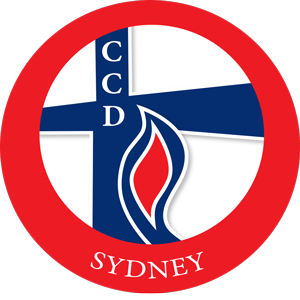Welcome
This webpage aims to help parishes consider options for face-to-face and online sacramental preparation.
Scroll down for instructions on downloading Gratia Series Sacramental Preparation PowerPoints.
DECISION-MAKING CONSIDERATIONS
Inviting registrations via parishes and schools
Parents can be contacted via:
-
parish records
-
local Catholic schools and
-
local public schools*
* To support student spiritual wellbeing, Parish Clergy can contact local Public School Principals:
“During this time of social isolation, I ask for your support to collaboratively promote student spiritual well-being and to build community connections as per the NSW Wellbeing Framework for Schools and Federal Education Declaration spiritual and community-building strategies.
Please convey the following community message to our parents/caregivers who have chosen Catholic SRE for their children about their faith community’s sacraments . . . .”
Parish leaders and school leaders are supported by both NSW Government school policies and Federal education declarations that aim to proactively promote student spiritual wellbeing by building community connections, e.g.
“Community partners can offer real opportunities for students to safely experience, apply, internalise, enact and reflect on their spiritual wellbeing”
NSW Wellbeing Framework for Schools | Spiritual Wellbeing strategies | Building community connections
https://education.nsw.gov.au/student-wellbeing/whole-school-approach/wellbeing-framework-for-schools
“Education plays a vital role in promoting the intellectual, physical, social, emotional, moral, spiritual and aesthetic development and wellbeing of young Australians, and in ensuring the nation’s ongoing economic prosperity and social cohesion” Introduction
“To support all young Australians to become confident and creative individuals who:
- have a sense of self-worth, self-awareness and personal identity that enables them to manage their emotional, mental, cultural, spiritual and physical wellbeing . . .
- appreciate and respect Australia’s rich social, cultural, religious and linguistic diversity and embrace opportunities to communicate and share knowledge and experiences . . .” Goal 2
Mparntwe | Alice Springs Federal Education Declaration | 18 February 2020 update
https://docs.education.gov.au/documents/alice-springs-mparntwe-education-declaration
Online/face-to-face options – upskilling parents as first educators
Parent/Child Preparation
CCD is creating downloadable PowerPoints with voice-overs (see ‘Resources’ below)
– to guide parents and their children through the Gratia Series Sacramental Preparation Children’s Activity Books
– for parishes to supply parents with a CCD webpage link; and/or, to help guide catechist/parent-led small group sessions on parish grounds
Process:
-
- Mustard Seed Bookshop to provide Parishes with CCD’s Gratia Series Sacramental Preparation Children’s Activity Books
- Parishes to send Children Activity Books to parents or arrange for them to collect books
- Parishes contact CCD to request downloadable PowerPoints with voice-overs
- Parishes email parents the PowerPoint files, session by session, to prepare with their child at home
- Aim: to help guide parents and child through Activity Book sessions and help up-skill parents as first educators of their children in Faith
- Parents/child to review their Activity Books with Coordinator/Catechists when completed
Zoom Webinar suggestion
-
- Parish Priest to record an introduction for each sacrament
- Parents to be sent CCD’s Gratia Series/other program to be worked through during session or completed at the end of the presentation
- Parents sent link to weekly Zoom webinar. This can be done in one large group or small groups.
- A Sacramental Catechist presents Zoom sessions based on a program.
- A review sheet can be sent to parents. This is to be filled out by children at the end of each session and sent back to the Parish by parents.
- Zoom session could be pre-recorded and watched by parents and child in their own time.
Face-to-face sessions – as suggested by a Parish Sacramental Coordinator
-
- Seminar style sessions to be held in church (if not too cold over Winter)
- Social distancing regulations upheld in welcoming one parent and their child candidate to attend
- Short, engaging sessions
- Children’s Activity Book to be completed in small group sessions with parent and child
Review of each session or upon completion
- Priest/Sacramental Coordinator may ask parents to email a smartphone/printer scan of one Activity Book page, as a sample of session completion if conducted remotely, along with asking if families have any comments or questions regarding the session
And/or
- Priest or Sacramental Coordinator to conduct interviews with families (online or onsite) to discern the child’s understanding and readiness to receive the Sacrament, e.g.
- Small group review session with 3 or 4 families at a time
- Small group reflection/retreat afternoons for parents and children – maintaining social distancing requirements – wherein Priest and Coordinator review Sacrament with each child and their parent.
Celebration of the Sacrament
- Decisions on when and how to celebrate Sacraments will be informed by Archdiocesan guidelines
- An example of a “Celebration of the Sacrament” Parish Email to Parents of Candidates appears in the next drop-down tab . . .
Celebration of the Sacrament for your child – sample email
Dear Sacramental Preparation Families,
I hope that you have all been well as we learn to manage and live safely with another type of corona-virus.
As you would be aware, health restrictions have been eased over the last few weeks and as a parish we are very happy to be able to slowly resume some of our parish ministries. While there are still restrictions in place, we feel that we can safely resume sacramental preparation and celebrations, within NSW Health requirements, given some adjustments and extra measures.
We are very keen for your child to be able to receive the sacrament of reconciliation, which they so diligently prepared for prior to the lock-down period. We are pleased to be able to offer 4 ceremonies in which the sacrament of reconciliation will be celebrated, these are:
[For example]
-
- Wednesday 24 June – 5:00pm
- Wednesday 24 June – 7:30pm
- Wednesday 1 July – 5:00pm
- Wednesday 1 July – 7:30pm
We are mindful of the strict criteria that we must still abide by. These are as follows:
-
- Liturgical services are restricted to [insert number] people
- Social distancing needs to be maintained
- All attendees at church need to be registered
- If you or your child are unwell, please stay at home and contact your doctor
- The church will cleaned following each service
In order to best manage our celebrations under these conditions, we ask all families to book their child in for a ceremony time. You can do this by calling the parish office on [insert phone number] or by reply email to me (please note that you will be placed in a ceremony only when I attend to these emails). Please take note of the following:
-
- Ceremony time must be booked beforehand. This will be on a first come, first served basis.
- Child can only be accompanied by parents. Siblings or other family are asked to remain at home.
- At the time of booking, you will asked how many parents will attend with the child so that we can ensure that the limit of 50 people is not exceeded.
- Please contact the parish as soon as possible if you need to change ceremony time or if the number of parents attending changes so we can make necessary adjustments.
We hope you can understand that while we would have loved for your whole family to be able to celebrate together, it is just not possible at this time when we have a number of families that we need to accommodate. Your consideration in this matter is greatly appreciated.
Your booking will serve as our registration of your attendance at the church. Spots for child and parents to sit together will be marked to ensure appropriate social distancing from other families and we ask you to please keep to these places.
This is a simple liturgy and we will guide all the children to receive the sacrament first. Once all the children have been to see the priests, parents will also be welcome to receive the sacrament of reconciliation if they wish. There will be no concluding rite with families able to leave once they have received the sacrament. We would, however, appreciate any help you can give us to clean the church prior to the next service.
We still recommend that you bring something quiet to do as there will be some waiting time involved. We also ask you to go over how the sacrament is celebrated (e.g. review Session 4/your Booklet handout) and to help your child in these next few weeks to prepare to receive the sacrament. Going over what the sacrament is all about, helping them through an examination of conscience, and talking about the gift of God’s love and forgiveness will hopefully help ease any nerves they may have, especially with the added issues the pandemic would have caused them through the preparation time.
Please do not hesitate to get in touch with me if you have any questions or concerns. We thank you again for your prayers and support of our parish during this time. We are very much looking forward to reconnecting with you all and seeing you at the parish, and of course, in being able to finally celebrate this sacrament with you and your child.
God bless,
[sign off by Priest/Sacramental Coordinator]
The Prayer Place
The Prayer Place is an area in the home, parish setting or classroom that is set aside to be used during family prayer, sacramental preparation sessions or Special Religious Education lessons in public schools. It would usually contain all the materials and resources used in religious education. The area is re-created/re-decorated for each family prayer time, sacramental preparation session or SRE lesson, according to the theme. The children are taught to respect the Prayer Place and to care for it.
The Prayer Place may contain:
- the Bible;
- Models of objects used in the Church’s worship;
- Models of people and objects from the time of Christ;
- Booklets of parables and stories of Jesus;
- Icons, crucifix, colourful posters of Jesus’ life and stories;
- Pictures/posters relating to the theme of each lesson.
Parents have a responsibility, as do Catechists, to not only to teach children about faith, but also to provide opportunities for them to experience a living faith through participation in prayer and liturgy. Since the practice of prayer is the practice of faith, the methods by which we pray and worship will affect and reflect the depth or otherwise of our understanding of and relationship with our living, ever-present God.
Prayer is:
- The raising of the mind and heart to God;
- Being open to a life-giving relationship with God;
- Our response to God’s invitation to this relationship of love and communion;
- Placing one’s life, as a whole person, before God, aware of one’s own needs and those of others and the world;
- Providing a diversity of experiences, which might include vocal, meditative, contemplative.
Practical tips from Sacramental Coordinators
Sacramental Coordinator Support: to link with other Sacramental Coordinators to ‘hear and share’ what worked well to help create ‘belonging’ and run sessions that were engaging for both parents and children: contact the CCD Office via office@ccdsydney.catholic.edu.au
Advice from two Sacramental Coordinators, Laura and Suzanne:
Laura
Parish SRE Catechist and Coordinator | Parish Sacramental Coordinator | CCD Admin Coordinator
Generally, I have found that it is important that parishes have a sacramental preparation schedule with dates clearly listed.
It helps if these dates are decided by the Parish Priest, Catholic School, Parish SRE Coordinator and the catechists who go in to public schools (sometimes the Catholic School Family Educators are involved too).
An information letter clearly stating dates is important, e.g.
- PARENT INFORMATION NIGHT
- COMMITMENT MASS
- LESSONS X 4
- RETREAT DAY
- CELEBRATION OF THE SACRAMENT
- THANKSGIVING MASS
Notes for running the Sacramental Preparation sessions:
Who will check enrolment forms, baptismal details, etc?
- It helps if an admin person is there at the sessions to handle these details, answer questions etc, whilst the leader is able to start the lessons; otherwise, a lot of time is lost assisting parents and then the children become restless.
One hour duration works well with a short break for the children.
- During this break, a ‘trip’ to the church is worthwhile to point out any particular part of the church that may have been mentioned during the class.
- Also, teach the children how to genuflect, how to receive Communion, light a candle etc, as sometimes parents do not always show or explain this to their children.
- It is a good idea during the retreat day to hold a rehearsal of the liturgy as well.
For Confirmation, it is ideal if the Bishop has an opportunity to meet the children beforehand: he can show them his Bishop’s mitre, crosier, etc, and discuss Confirmation.
It is a good idea to encourage parents to bring children to all lessons: explain that our volunteer sacramental preparation team members “want the best for your child” and for them to learn more about their faith, to build up their Christian character to become deeply happy, peaceful, resilient people … do not say things like, “If you don’t attend, your child won’t receive the Sacrament.”
Be mindful that some children may only have one Catholic parent: ensure the non-Catholic parent is made welcome. This applies also to divorced parents: children may live with one parent during the week and the other parent on weekends, so attending sacramental preparation classes is sometimes difficult.
Ensure parish children who attend public schools are kept up-to-date with any change of plans, as sometimes only the Catholic School students are made aware of such changes, which may happen unintentionally if the Parish hands over organisation to Catholic School staff, who may not realise that, on average, half of our Catholic children are in public schools: this does not happen when sacramental preparation is Parish-based.
Scenarios
I have outlined, below, a couple of scenarios and observations from my 15 years as a Sacramental Catechist, including from other neighbouring parishes and parishes of my extended family and friends. It is interesting how parishes differ in their delivery of sacramental programs, including those that are outstanding and well organised all-round, whilst others would benefit from some direction to improve certain aspects of their program delivery.
First and foremost, I feel it is very important that the Parish Priest encourages both Catholic school staff and Parish Catechists to work together and to liaise with one another on a regular basis in regards to all aspects concerning parish sacramental programs.
Some examples of what has really happened where awareness and lines-of-communication were lacking:
- A “school-based” sacramental program (i.e. where the Parish asked their local Catholic primary school to organise Confirmation), led to the Catholic school arranging for the Bishop to visit the Confirmation candidates a few days before Confirmation, but they did not invite the parish’s Confirmation candidates in our public schools.
- On the day of First Holy Communion, the children of the Catholic school came to Mass with their Baptismal candles, which were lit at the beginning of Mass and carried in the entrance procession. The parents of 10 parish children who attend the local public school were not informed of this, which led many parents to complain (this could of been handled better if the school had informed the Parish Catechists who, in turn, would have informed the parish’s public school parents).
Recommendations
- If Parishes out-source sacramental preparation the their Catholic school that Catholic school teachers are made aware that there are parish children from the public school receiving the Sacrament on the same day as the parish children from the Catholic school.
- Catholic school teachers be made aware that there are Parish Catechists who go into public schools (there are 2000 in the Sydney Archdiocese and another 3000 in NSW who pray with and teach 100,000 Catholic students in public schools)
- Parish Catechists to be invited to sacramental preparation planning meetings and to retreat days (especially if these must be held on a weekday) so the public school students’ families may receive information via their Catechists and be supported by them throughout the program.
- If Catholic school students are to participate in a liturgical movement, e.g. after their First Reconciliation, that the initial planning process considers and involves the parish children who attend public schools.
- Include ‘ice-breaker’ activities to avoid school “friends” joining together to form “a group” that may leave parish children who go to other schools on their own and feeling excluded.
Suggested solutions
- Parish Priest, Parish Catechists and Catholic School staff to have meetings to be able to discuss plans and how each Sacrament will be coordinated. It is important for all parties to be in contact with each other during the program.
- Information nights held for both public and Catholic school parents and students has been working well (I assume most parishes do this).
- Ideally, sacramental preparation sessions be parish-based (not school-based), so all the children are learning the same content and which will help develop friendships among the community.
- Retreat days to be held on weekends, rather than school weekdays, given it is more difficult for public school students to attend: public schools require leave of absence permission from a parent/carer, which may require an explanation note from the Parish to categorise the absence as being for religious reasons (Type “L” Absence).
- If a weekday retreat must be held, ensure duty of care for both Catholic school and public school children. It is advisable that parents be included to avoid the possibility of parents arriving late to collect their child.
- 4 weeks of sacramental sessions is not sufficient: 5 to 6 weeks is more ideal. Sacramental preparation ‘lessons’ ought to be part of a broader parish-based program.
- Extra time is always required to take children through the various parts of the Mass. This could also include time for a craft activity (like creating their own pew card, etc).
- Sessions that are held before Mass have worked well as it encourages families to attend Mass with their child during the program.
Suzanne
Parish SRE Catechist and Coordinator | Parish Sacramental Coordinator | CCD Faith Education Officer
Sacramental Programs for Children – some points for Clergy to consider
- Be supportive of your Sacramental Coordinator. It is a challenging and time-consuming job.
- Help your Coordinator with parents who may have challenging, additional needs and/or family circumstances.
- Be consistent regarding parish requirements. Discuss requirements with your Coordinator first, e.g. if the program is for Year 3 children do not accept Year 2 children, unless there are exceptional circumstances. If an exception is granted, inform your Coordinator as this will help your Coordinator field requests from other parents of Year 2 children who may not have exceptional circumstances.
- Be interested in the program. Know what is happening.
- Be involved: attend and address the parent information evening, be visible in welcoming at the Commitment Mass, retreat afternoon and talk with parents and their children as appropriate through trying to attend and even teach a session for each group.
- Be realistic in expectations for children and parents, e.g. Mass attendance.
- Encourage families to return once the Sacrament has been received – have engaging ‘follow on’ initiatives in place, e.g.
regular ‘Children’s Masses’ followed by “Bouncy Castle and BBQ” morning tea-lunches; charitable ‘doing’ activities to help young people see they are making a difference; pizza and team-building times, etc.
- Involve the children in the Masses. Parents love to see their children participate, e.g. our Priest would create an extraordinary special moment by inviting the children to stand around the Altar from the Offertory until the Sign of Peace, during which time he would teach them about the Sacrament of the Eucharist.
- In the Sacrament of Reconciliation, remember that these are little children. It is best to sit on a seat openly in the Church with their family nearby.
- Go and talk to the children in the Catholic school so they know who you are.
- Remember, there are parish children in your parish’s local public schools. Arrange to visit them also on a regular basis. Many of these children do not even know what or where the church building is until they come to sacramental preparation time.
- Do not separate Public, Private and Catholic school children. Sacraments are parish events and all parish children should be treated equally and feel that they are part of one family.
Recommendations
- Hold the retreat day/afternoon on a day (e.g. on a weekend) so that public/private school children may attend also.
- Do not separate Public, Private and Catholic school children into two ceremonies. There should be no division.
- Ensure Public or Private school children are as included as their Catholic school peers.
- If you ask your Catholic school teachers to run the sacramental preparation program, ensure there is good communication with your parish’s public school SRE Catechists and families, e.g. avoid your Catholic School teaching their students special songs or liturgical movements for the ceremony that the Public/Private school children do not know: all children should be able to participate and be fully involved with their reception of the Sacraments.
Resources
1. Gratia Series for Sacramental Preparation
Upskilling parents as first educators and first catechists
“What do you want for your child?” Parent Handout (681 Kb download: double-sided PDF)
To help families prepare at home, PowerPoints with voice-overs and scripts that explain the pages of the Children’s Activity Books are available to guide parents and children:
![]()
To view Reconciliation Session 1 PowerPoint SAMPLE, click here (18Mb download)
To view Communion Session 1 PowerPoint SAMPLE, click here (14 Mb download)
- Designed to have a set of four preparation sessions for each sacrament within a broader time of parish-based preparation
- Sessions should see parent and child praying and learning together
- The material covered in each session may have been taught to the children in a school situation
- Importantly, these sessions are designed as a second teaching where parents are also involved
To download PowerPoints to accompany your parish’s Children’s Activity Book order:
Step 1. Email CCD to receive a PASSWORD: office@ccdsydney.catholic.edu.au
Step 2. To enter the PASSWORD to download the PowerPoints, click here (this link will open another webpage where you can enter the PASSWORD)
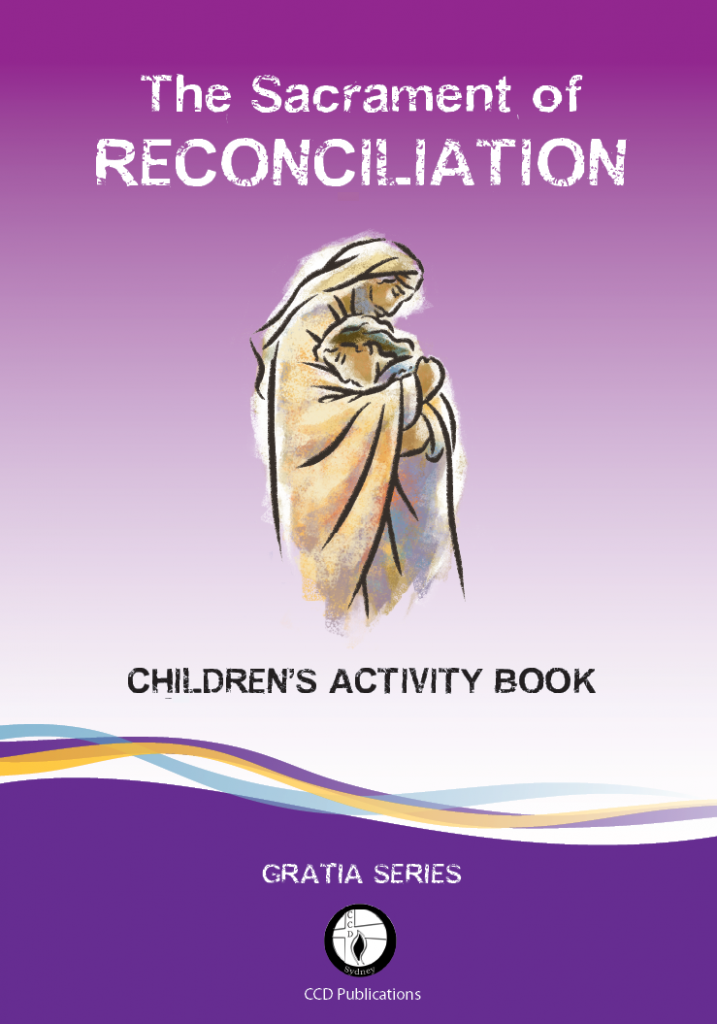 FIRST RECONCILIATION PREPARATION
FIRST RECONCILIATION PREPARATION
Reconciliation is about discerning/celebrating the fact that your child is now able to recognise the need to ask for forgiveness (it is not about being able to merely recite a list of sins).
Session 1: Choices, Choices – what is sin – breaking of a relationship. Children and parents look at choices – good choices that show love and build friendship and poor choices that harm friendships.
Session 2: Friends – Jesus wants us to be his friend. You will be Jesus’ friend if you love one another.
Session 3: Forgiving and being forgiven. Steps to forgiveness: own up, be sorry, want forgiveness, try to do better. If your child can do this it is something worth celebrating.
Session 4: Preparing for the liturgy – Reconciliation – a new start, examination of conscience.
FIRST EUCHARIST PREPARATION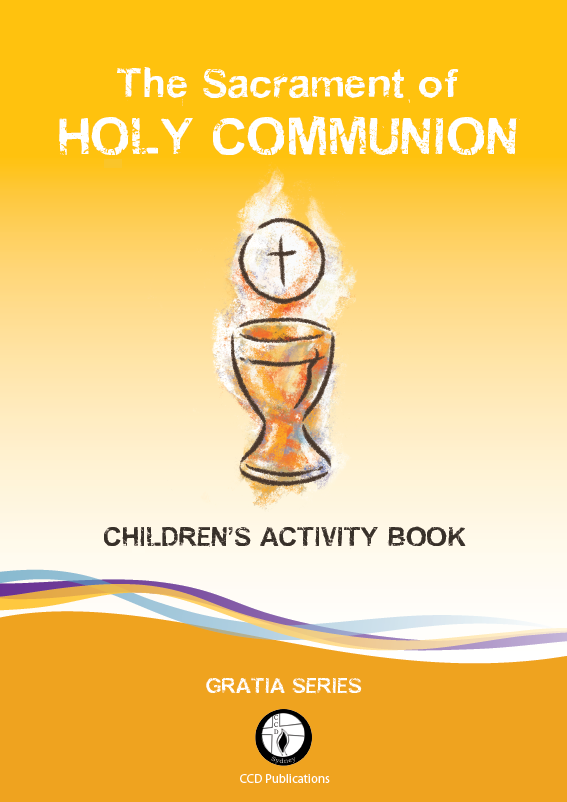
Covers the four parts of the Mass and the four ways Jesus is present during Mass and the rituals for each part of the Mass.
Session 1: Introductory rites – Jesus is present in the people who gather to worship
Session 2: Liturgy of the Word – Jesus is present in the Scriptures proclaimed
Session 3: Liturgy of the Eucharist – Jesus in present in person of the priest leading the celebration
Session 4: Receive and sent – Jesus is present in the bread and wine when these become the Body and Blood of Christ.
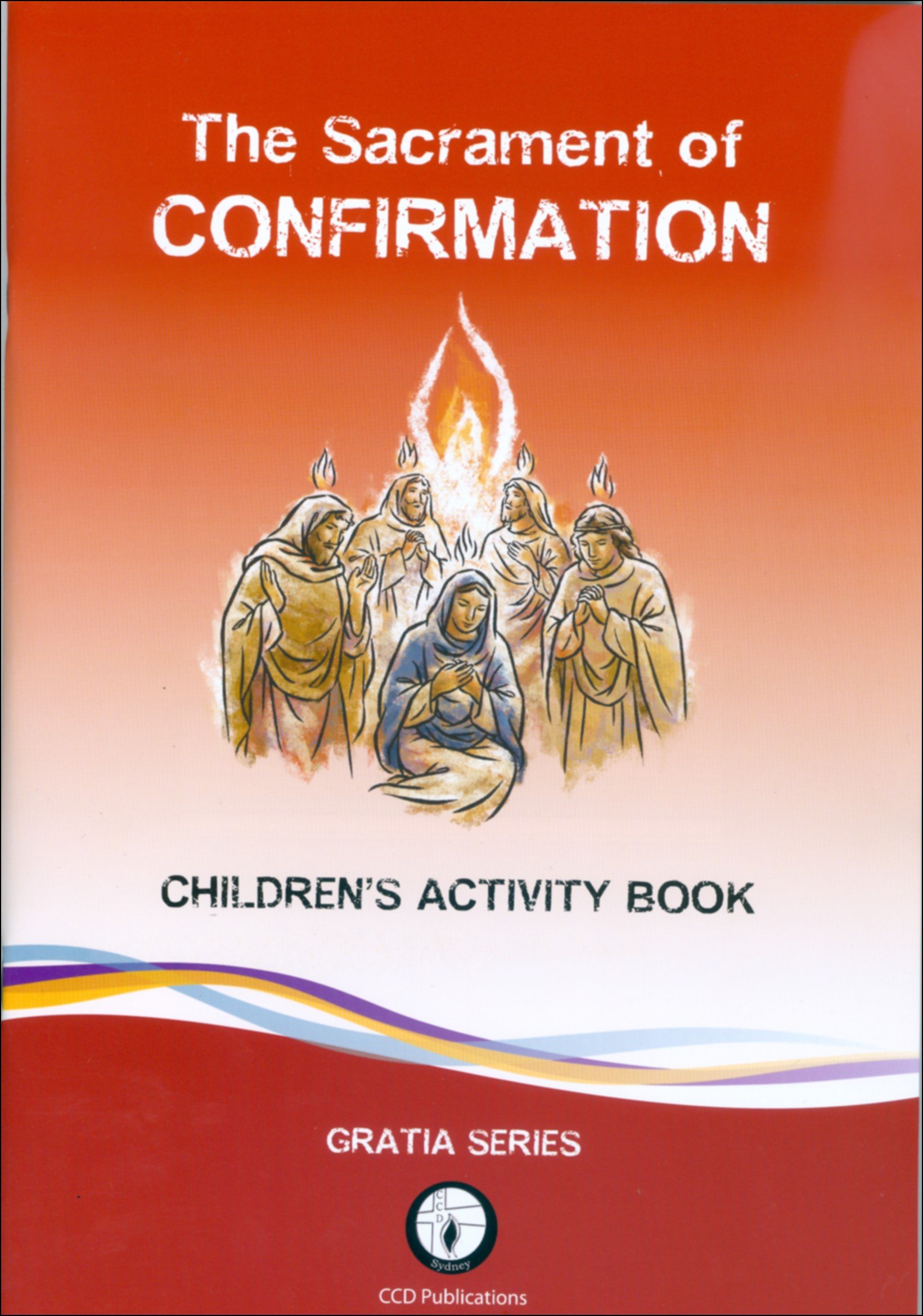
CONFIRMATION PREPARATION
Session 1: Jesus promises to send the Holy Spirit
Parents and children look at baptismal promises and the Creed we proclaim each Sunday. Discuss their baptismal saint and their Confirmation saint names.
Session 2: Pentecost – What does it mean to be a witness?
Discuss their choice of Confirmation sponsor. How does their sponsor give witness to being a follower of Christ?
Session 3: Fruits and Gifts of the Holy Spirit
Parent and child look at people (their Saint and their sponsor) who show the fruits of the Spirit and discuss which Gifts of the Spirit helps them do this.
Session 4: Preparing for the Liturgy of Confirmation
